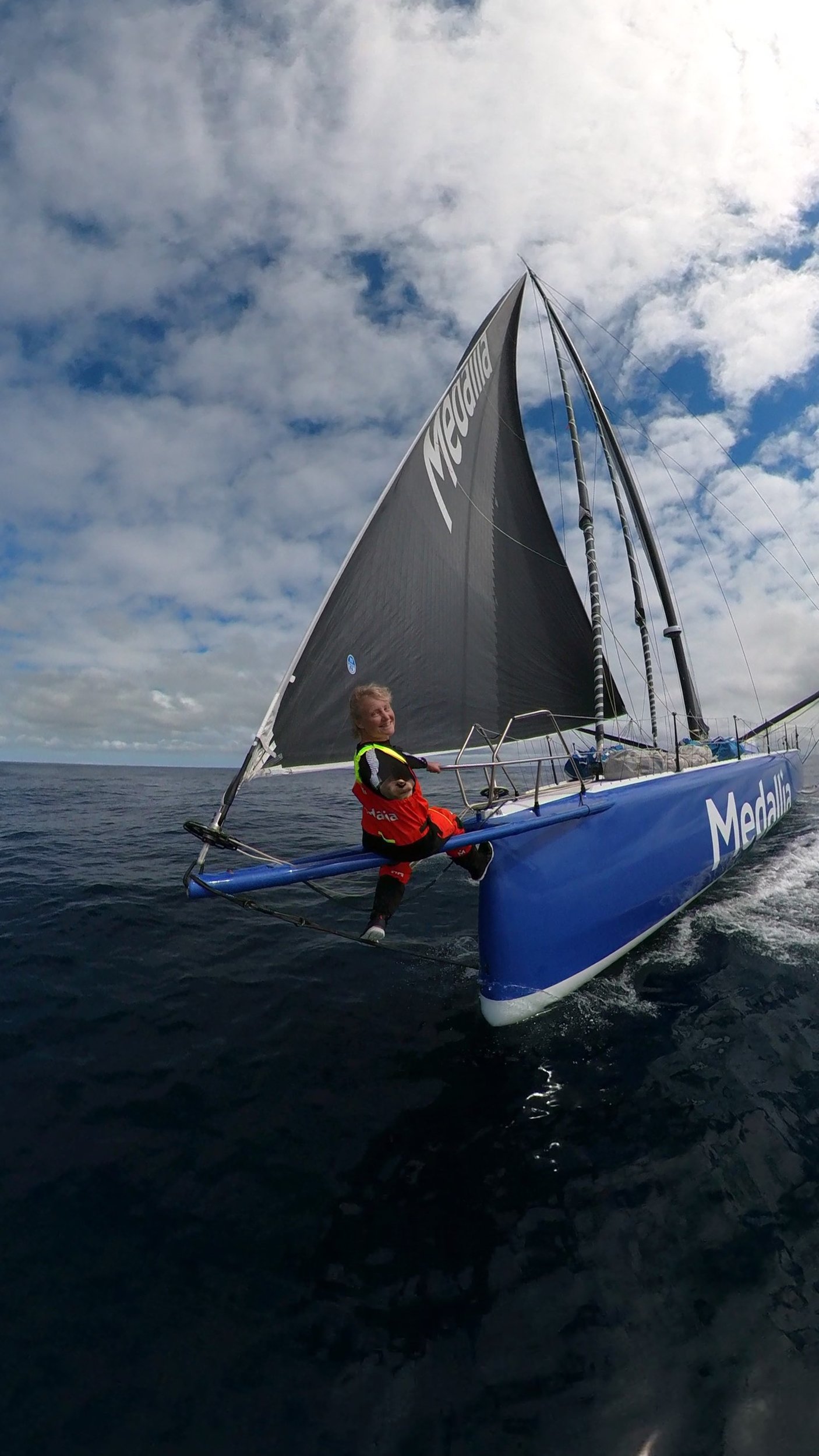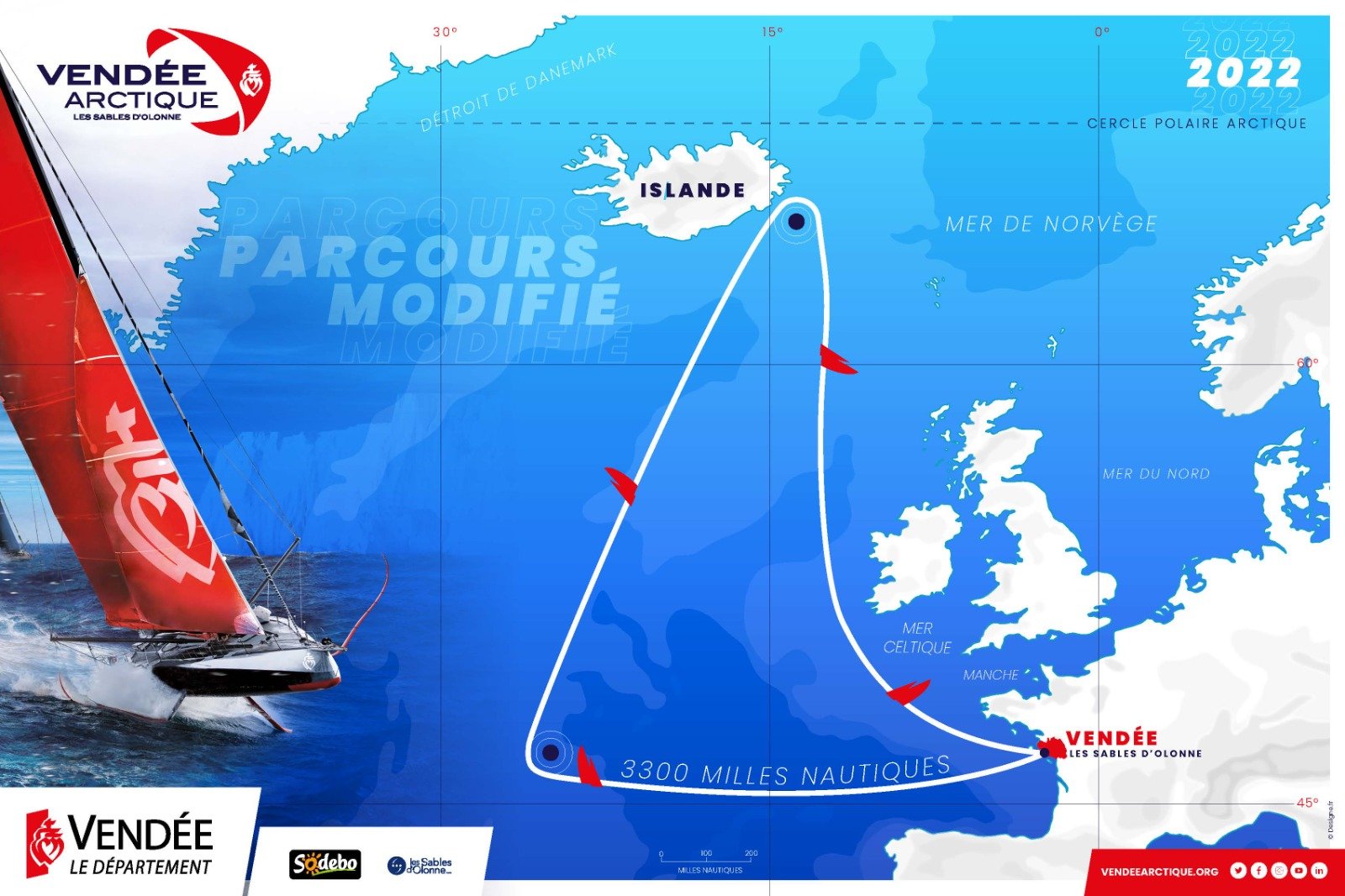Digging deep is compulsory
While most of the fleet is being challenged by a lack of wind, I decided to have my own challenges yesterday evening on Medallia and in doing so exposed how reliant we are on power to not only perform but to survive in these machines.
At about 1800 I was out on deck and the boat tacked on its own, no great emergency as there was only 7 knots of wind, but obviously the autopilot had encountered a problem. I had been having some glitches with data pathways through the boat but thought we had solved them, all the instrumentation also turned off immediately, so I thought it was a problem with the instrument CAN BUS which is the 'backbone' wire that supplies power and transfers data to all components. But looking across the system all three Can Buses were clearly dead which was unusual, as we had built a back-up into the system. Big sigh and head down below to discover the computer is off, the keel controls dead also - we had a total power failure.
When something like this happens, I get gripped by an immediate feeling of fear or anxiety and my stomach clenches. I guess it’s an acknowledgement of the magnitude of the situation and that I not only have a technical issue to diagnose and fix but all the while I need to keep my 60ft beast of a boat under control with no autopilot and no hydraulic keel ram which is hard. Luckily in this occasion there was not much wind and the boat had naturally hove to (tacked with the jib still on the wrong side) - this is a trick used by sailors from all eras and a way of getting the boat to sit relatively still without needing to steer. It doesn't always work on boats this powerful but in the light breeze it did me just fine.
My immediate action would normally be to ring Joff (Technical Director). We have a system. I only ever ring him if it’s bad, otherwise it’s a text message. He hates phone calls from me and I hate making them. But in this case, I had no comms, everything was off. I was alone and also all of my reference manuals were on the PC. I did about 20 minutes of frantic looking for the problem then very aware there is a large low pressure approaching, sat and thought through how I would get back to land safely with no power. This made me calmer, I have paper charts and a hand held with extra batteries in the grab bag. I could navigate in this way and would just have to hand steer and when I needed to rest I would take some sail down and let the boat drift safely - not ideal but I was sure I could get back to shore safely like that.
While I considered the grab bag I remembered I have an emergency phone in it, which I reached for praying it would be charged as I have never used it before. There was no need to pray as this is not a detail that Joff would let go unnoticed. The phone was charged and his number was already programmed in on speed dial. In less than an hour after following a logical sequence of diagnostics with my trusty multimeter, I had found the problem, a series of events had led to the batteries turning off, so I reset them and the power was back on. I reported the good news back to shore but the work was not over for me.
In order to reset the gyrocompass that drives the autopilot the boat needs to be at a standstill, this after drifting round for 24 hrs turned out to be harder than you might think. I tried sailing backwards, head to wind, everything but I could not stop so in the end I had to reprogram the pilot to take a feed from the spare compass and all of the instruments as well. In amongst this the pilot started behaving erratically. Initially I put this down to bad compass information but even with the spare compass this did not change. A deep dive into the black caverns under the cockpit and I found the reference unit which tells the pilot where the rudder is had jumped off. I put this back in place and finally after three hours of hard graft was good to go again.
When the problem started, I had been alongside Isabelle in some great breeze and aiming to head west. When I was back in the game the wind had died and I was left slopping around in 2 knots of wind but nevertheless happy the alternatives had not come to pass.
I have made a lot of notes about the situation to discuss with the team when I am back. There are a lot of learnings and these three years of racing before the Vendée are as much learning the boats weaknesses as well as mine and making it bullet proof. Sometimes you don't know a problem is possible until it has happened, so although you hate to have problems on races, I always think of it as a problem eliminated from the Vendée Globe race. We learn, we make sure it can never happen again, we move on.
And move on we have. I am now charging north, ahead of the low-pressure system advancing ominously across the Atlantic. The race committee have just notified us of a change of course, due to the forecast we are no longer going round the top of Iceland, just need to pass through a gate by the SE corner of the island and head back south west into the Atlantic. Time to do some navigation, the course has changed but there are still strong winds coming. the next few days are going to be the biggest conditions I have ever sailed this boat in. Digging deep is compulsory.
Pip x


